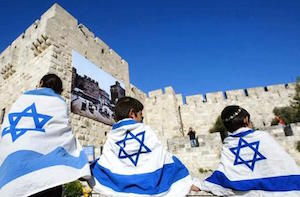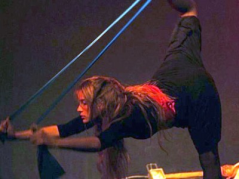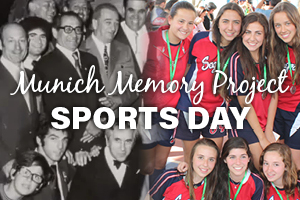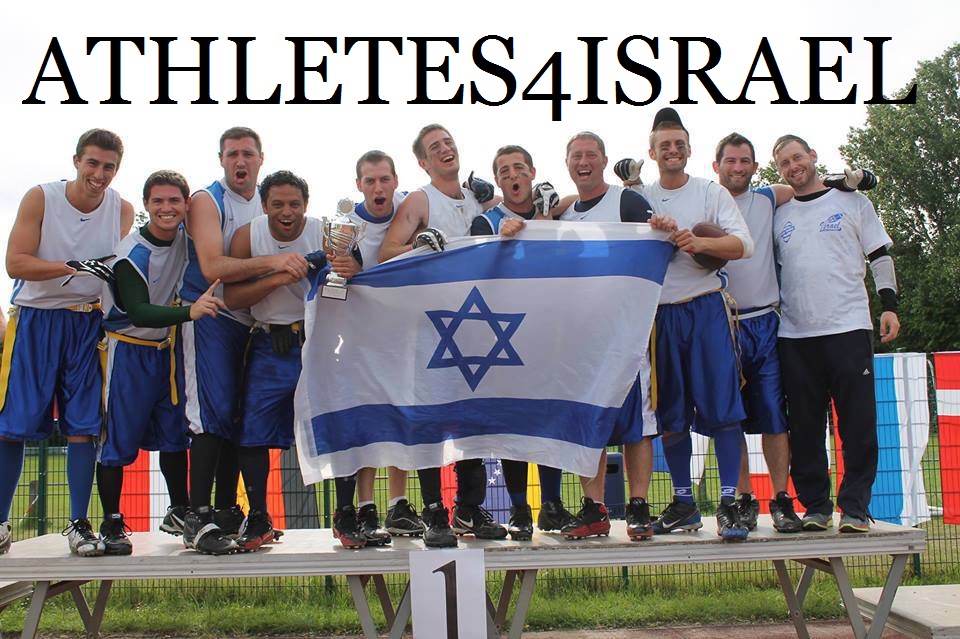The Miracle on the Diamond
By Alden Tabac
The COVID-19 pandemic has shaken countries across the globe. As a result of its impact, the 2020 Summer Olympics in Tokyo were postponed until next year. Had the world’s largest international sporting event occurred as it was supposed to, the sporting community and viewers all around the world would have been in for a unique sight - Israel would be one of the six qualifying countries to compete in baseball, having won the qualifier to represent the region of Europe and Africa.
When people think of Israel, baseball does not often come to mind. The country’s only baseball league existed for just a year in 2007, and most of the players on its six teams were foreign-born. Baseball has yet to really catch on as a popular sport since the failure of the Israel Baseball League, but luckily for Israel, the sport is extremely popular among American Jews, who wish to continue to see it played in both of their homelands. Prominent players such as Alex Bregman and Max Fried are continuing the long legacy of Jewish baseball players led by Hank Greenberg, an all-time great slugger, and Sandy Koufax, one of the greatest pitchers in history.
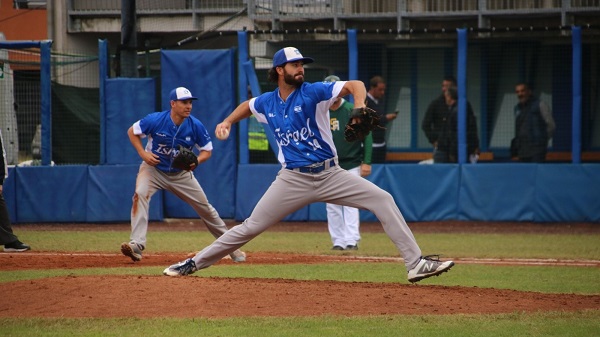
Joey Wagman, star pitcher for the Israel National Baseball Team. Photo courtesy of Israel Association of Baseball
While Israel often sends small delegations to the Olympics for individual and pair sports such as figure-skating, sailing, and judo, the 24-man baseball roster would have seen Israel send its largest ever delegation. To say that Israel stands out in comparison to the three other qualifying teams thus far - Japan, Mexico, and South Korea - would be an understatement. These three other qualifiers are globally recognized as top baseball countries, and have all produced hosts of Major League stars.
The 2017 World Baseball Classic put Israel on the map as a strong baseball nation. However, all but one of the team’s players were born outside of Israel. The rules of the tournament allowed any player eligible for Israeli citizenship to play for Team Israel (rumour has it that the team even tried to recruit Mike Moustakas, a player of Greek descent with a Jewish wife), so the team and coaching staff consisted almost entirely of eligible Americans, aside from pitcher Shlomo Lipetz and coach Alon Leichman, who are both Israeli.
For various reasons, perhaps due to the lack of appeal of playing for a team with little chance to succeed, the top Jewish Major League players opted not to compete with Team Israel in the tournament, and yet the team saw unexpected success in the star-studded tournament despite not having even a single player who was on a 40-man roster of an MLB team at the time.
The team of minor-leaguers and former MLB players upset South Korea and the Netherlands, two baseball powerhouses, along with Chinese Taipei in the first round. Since the games were played in South Korea, many of my friends and I woke up early to catch the games and the magic of Team Israel at 4:30 AM. The team continued to shock the baseball world as they defeated Cuba in the second round before ultimately losing their next two games, finishing the tournament in sixth place out of sixteen teams. This miraculous achievement for an enormous underdog even garnered recognition from Prime Minister Netanyahu, who congratulated the team.
The players certainly enjoyed representing Israel for a variety of reasons. In a sport dominated by non-Jews, Israel’s designated hitter, Cody Decker, enjoyed the cultural aspect of playing on a team with other Jews. Decker joked that “On this team, I can say the most random Seinfeld reference and everyone laughs and quotes the next line. It’s the only baseball team in the world that can do that.”
For others like Ty Kelly, who was born to an Irish father and a Jewish mother, the experience with the team deepened his religious connection, and left him wanting to “study as much as I can and stay connected as much as possible,” and “have as much depth in this as possible and not just something where I go play baseball for a tournament and it means nothing else.”
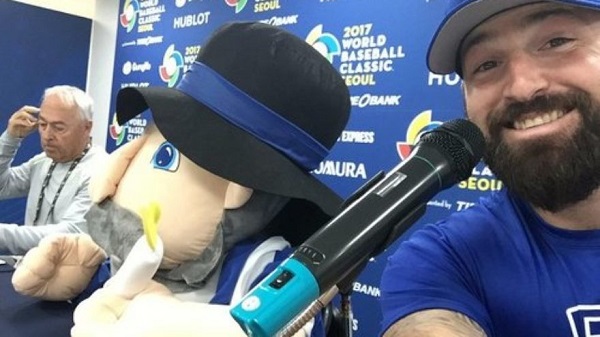
During a press interview, Cody Decker takes a selfie with his team's mascot. Photo credit: Cody Decker on Twitter
Team Israel’s incredible run sparked a wave of pride among Jewish baseball fans who began to sport the team’s Magen David cap. The Mensch on a Bench, a smiling Jewish man with a long beard and a tallit, served as the team’s mascot and provided an element of humour relating to the Jewish nature of the team.
In addition, before every game the team - most of whom are secular - would wear kippot as Hatikvah was played in front of audiences who had never heard the beautiful anthem before, let alone seen a kippah. Just imagine the impact it had on those who witnessed this turning point in the history of athletes representing Israel, the Jewish people, and the Jewish identity proudly in the baseball realm.
Unlike the World Baseball Classic, the Olympics require athletes to be full-fledged citizens of the countries that they represent. Therefore, the American players on Team Israel’s roster required Israeli citizenship to compete. The players did not hesitate to declare their commitment and obtain Israeli citizenship, with some even moving to Israel part-time.
Former MLB star and current San Diego Padres executive Ian Kinsler recently became a citizen of Israel due to his plans to play for Team Israel at the Olympics. Kinsler, who previously represented Team USA in the World Baseball Classic, even made sure to visit the land (as reported by The Jerusalem Post), and provided baseball instruction for young Israeli players with hopes of growing the sport in a country where the spread of baseball is still in its early stages.
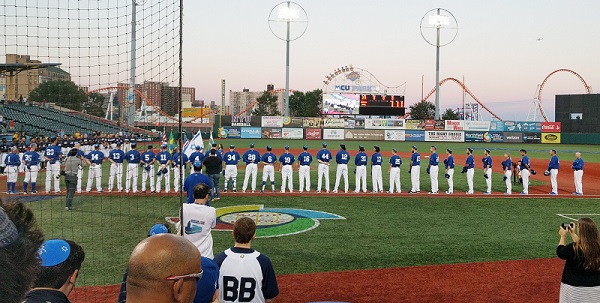
Team Israel wears kippot during the singing of HaTikvah at the start of their game.
The team provides a sense of pride to Jewish baseball fans and has led to its players developing a special connection with Israel despite coming from mainly secular backgrounds. These players who are now full fledged citizens of the country demonstrate the power of the bond of our birthright to Israel that is shared by all Jews.
Unfortunately, most of the international Jewish community has largely ignored the success of Israel’s baseball team. For North American Jews, the love of baseball could be a fun way to reignite an interest among youth and all ages in Israel and her role in the world as representing the Jewish people and the Jewish state alike.
Many can recall the excitement as the Israeli team entered the stadium in Munich 1972, and each competition since in as many arenas as possible. We watch with joy as our flag waves proudly among the nations of the world in this testament to athletic prowess and friendly competition. Along with the many Israeli medal winners in the wide range of sports, Israel’s baseball team deserves our support and love.
Now is the time to get behind the only Israeli team that ranks among the top in the world. The Olympics and other international competitions mobilize entire countries to support their teams. During the World Cup, people fly flags from their cars and outside their houses for their national team, and gather together to watch the games in patriotic fervor. Jewish baseball fans from everywhere in the world can proudly raise our national flag, right alongside that of the country in which we live, without having to feel embarrassed or demonized for “dual loyalty.”
It is our right to express the pride we feel for the countries to which we are connected and committed. Baseball is a peaceful game which all sports fans can unite around.
If the 2021 World Baseball Classic would have happened (it was cancelled due to COVID-19 concerns), Israel’s impressive finish in 2017 qualified them to compete again without having to win any qualifying tournaments. Whenever the World Baseball Classic does occur, Israel will be ready and the team’s success will hopefully continue to inspire. With the increase in aliyah of North American Jews, perhaps baseball activities will expand. Batting cages and fields can be set up around the country, and ‘the thinking man’s game’ may find new popularity among thoughtful Israelis of all ages.
There is so much that Israel and the Diaspora can learn from each other. Perhaps a love of the game can bring us even closer. I am hopeful that as baseball continues to grow in Israel, future rosters of the national team will feature Sabra stars. For those of us who already love the game, why wait to show your support? Watch the team’s games, follow the players, and you will develop an even greater love for Israel.
For those of us who love baseball and Israel, use the national team as a match to spark the interest of baseball fans who are not engaged with the country. As seen with Team Israel’s American players, a love for the game and the team will lead to further interest and connection to the land, and ultimately a greater love for the country.
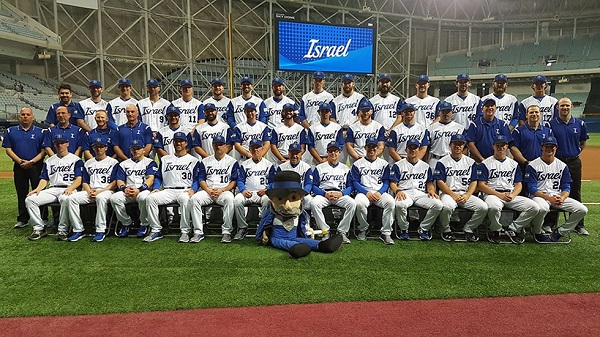
Team Israel at the WBC 2017 Photo credit: Israel Association of Baseball
Recommended for you:
About the Author


